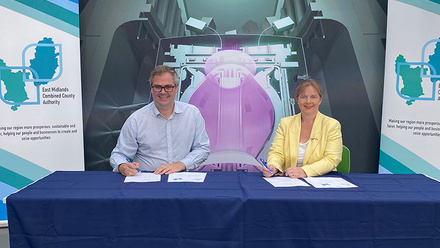Clariant collaborates with Indonesia's Pertamina in advanced biofuels assessment
Indonesian oil & gas company Pertamina and Swiss chemical comapny Clariant collaboratively evaluate the feasibility of sunliquid technology to convert available regional feedstocks into advanced biofuels.

Since 2018, the companies have been conducting a technology evaluation and a conceptual engineering study – Pertamina presented the project collaboration details at the trade show Hannover Messe which was held virtually from 12th – 16th April.
The collaboration first focused on techno-economic performance analysis, and the testing of empty fruit bunches and palm leaves. The final results of the assessments proved that the sunliquid technology can successfully convert both feedstocks into cellulosic ethanol while achieving a good conversion yield.
Further, a recently conducted conceptual engineering study quantified process balance, facility specification, and process economics in detail. This lays the groundwork for Pertamina's continued consideration of investing in commercial-scale advanced biofuel production plants.
Indonesia has a vast potential of untapped biomass, from empty fruit bunches to palm leaves, that could be converted into cellulosic ethanol. Their present-day utilisation is negligible and, until now, both feedstocks are frequently burnt, causing air pollution.
In Indonesia, ethanol demand is expected to increase dramatically, spurred primarily by a nationwide E10 ethanol blending mandate. Advanced fuel technology solutions are vital to match the feedstock potential with the increasing ethanol demand in the country.
The realisation of commercial-scale, advanced biofuels projects based on regionally available feedstocks, could help Indonesia become more independent from foreign fossil fuel imports and secure its national energy supply. In 2015, the Indonesian government introduced national biofuels targets. The bioethanol mandate in transport for the non-Public Sector Service Obligation (PSO) aims for a 10% bioethanol content as a gasoline additive and will be realised in the next few years.







